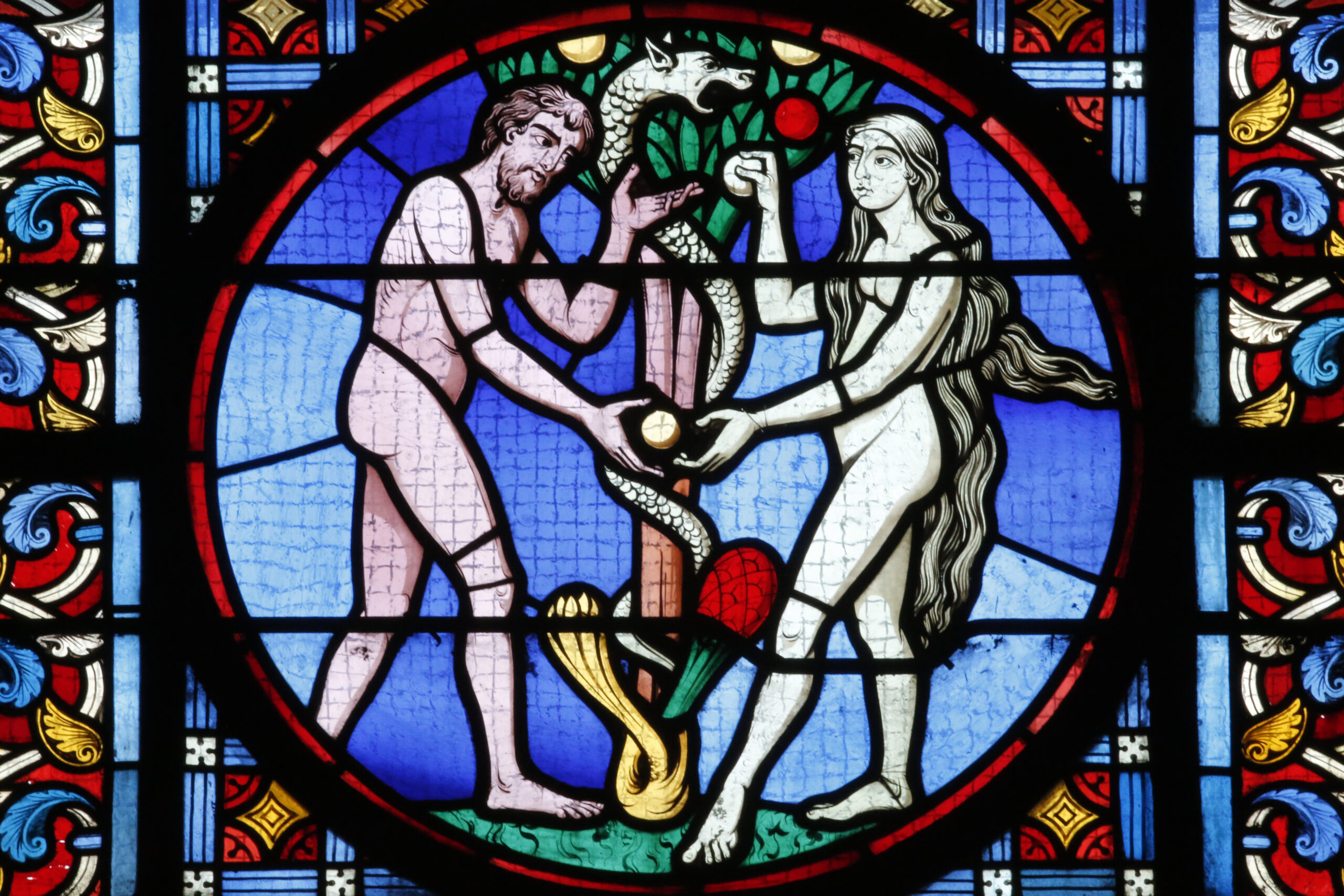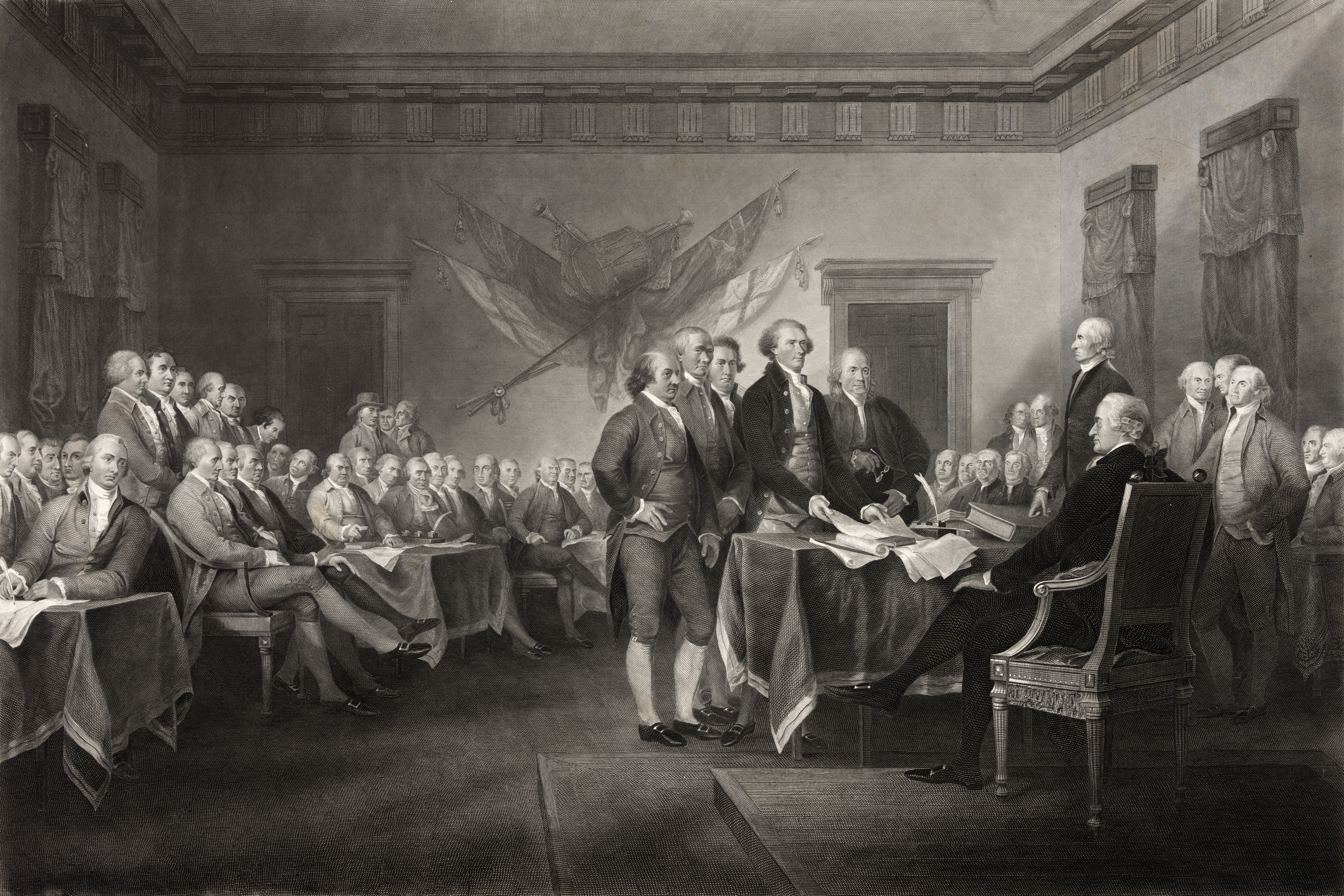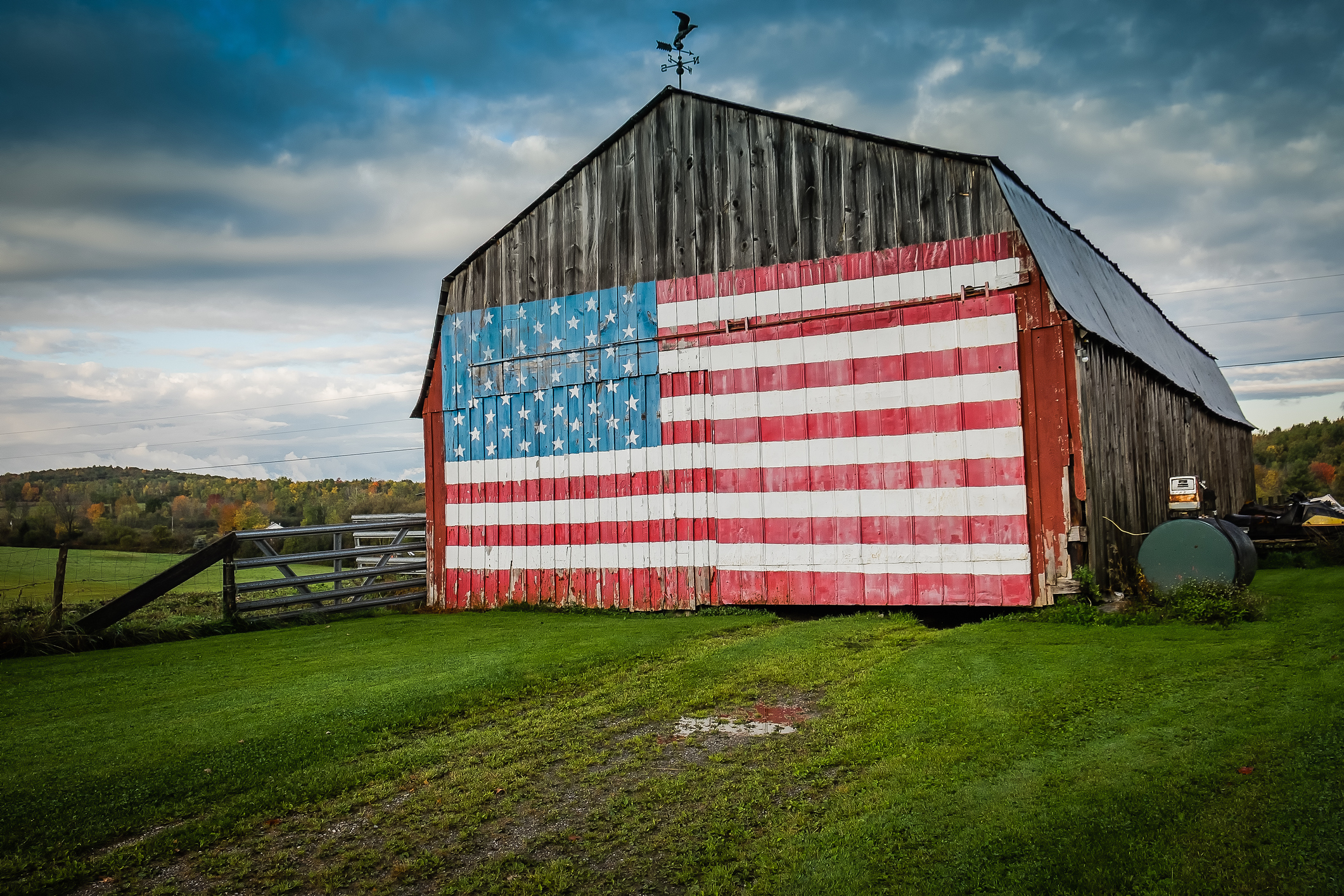Nationalism in the abstract can’t defend our unique constitutional traditions.
Two Adams, Two Foundings

There’s no escaping the tensions inherent in National Conservatism, and in political life.
David P. Goldman responds to Charles Kesler’s essay, “National Conservatism vs. American Conservatism,” from the Winter 2023/4 issue of the Claremont Review of Books.
Charles Kesler’s indictment of the conflicting elements in National Conservatism—between religion and secular rationalism; tradition and Constitutionalism; nationalism in the sense of “shared inheritance as the essence of shared identity and common will” and America’s “exceptional” nationalism—is so compelling as to make any attempt at refutation pointless. I plead guilty on all counts, but with extenuating circumstances. I signed the National Conservatism manifesto in full awareness of its inconsistencies, and would do so again today.
“Our nationalism has always been exceptional,” Kesler observes, “featuring more individualism, more pluralism, more freedom, and more statesmanlike deliberation and prudence than is typical. We think of ourselves as a founded nation; most nations don’t think they have or need such a clear, conscious, and principled beginning.” I would go even further: The supposed “shared inheritance” of the European nations is less the result of sedimentary accretion of traditions stretching back into the mists of time, than an ossified remnant of an earlier founding. I wrote in my review of Yoram Hazony’s 2022 book Conservatism: A Re-Discovery that “the nation as it came into existence after the ruin of the Roman Empire was not—as Hazony seems to imply—a spontaneous agglomeration of families, tribes, and clans for purposes of self-defense. On the contrary, it was a project of the Catholic Church, which sought to civilize the Visigoth barbarians who conquered Spain and the Merovingians and later Carolingian rulers of France.”
Kesler draws a bright line between Europe’s ethnocentric nationalism and America’s concept of citizenship—rightly so. The nationalism of the 19th century was a Romantic attempt to reinvigorate the nations of Europe by reinventing the Middle Ages after Napoleon leveled the Old Regime. It was a new founding rather than a continuation of ancient and accretive traditions, and it prepared the slippery slope that led to the World Wars of the 20th century. Europe’s atavistic nationalism was not a revival of tradition but a perverse innovation. Sometimes empire is better. The Austro-Hungarian Empire provided governance far superior to the plethora of nationalisms sponsored by the Versailles Treaty.
And yet we Americans do have something in common with every polity that has ever stood on the face of the earth. The extenuating circumstance I cite in my guilty plea is the unattainability of the Heavenly City from the starting point of the Earthly City. As the Maine farmer told the tourist asking for directions to Portland, “You can’t get there from here.” It surely is the case that a few exceptional individuals can look at death with equanimity—I have no reason to doubt the sincerity of Socrates’ professions in Crito—but these individuals are rare. We are finite creatures of flesh and blood, but eternity is infinite, and human reason cannot bridge the great gulf fixed between mortal life and the eternal. We do not beseech “nature and nature’s God” in the dark night of our soul, but the God known to our fathers.
Culture and the institutions that sustain it offer the hope that our time on earth will not vanish into the ether, that some remnant of our personality will be incorporated into the lives of future generations. Cultures by their nature are national cultures because of the shared communication of language and the shared experience of history. We hold national institutions sacred because they provide a metaphysical link between past and future.
America’s founding looks to both the Earthly City and the Celestial City. By no coincidence, the books that Huckleberry Finn finds in the parlor of the Grangerford home are the Bible and Pilgrim’s Progress: “One was a big family Bible full of pictures. One was Pilgrim’s Progress, about a man that left his family, it didn’t say why. I read considerable in it now and then. The statements was interesting, but tough.”
Twain’s novel—the most definitively American work of fiction—is modeled on Bunyan’s 1678 allegory of Christian redemption, as Harry Jaffa observed in private conversation. But there is one great difference between Twain’s work and Bunyan’s: The Christian pilgrim completes his journey to the Celestial City, but Huck at the end of the story can only begin his journey all again. And not just Huck: Every cowboy, private detective, adventurer, and other avatar of the antinomian American anti-hero must begin his journey over and over again. Every cowboy rides off into the sunset, every detective moves on to the next case. If the journey of the lone pilgrim is the dominant theme in American fiction, it is a journey that can never end.
Double Vision
There is no path that can take us from the Earthly City to the Celestial City. The Celestial City glimmers like the vanishing point at infinity of a painting in perspective. It has no direct bearing on Montesquieu’s machinery of checks and balances, of the interplay of interest and faction in the day-to-day working of democracy. But without that image of the Celestial City at the vanishing point, the invisible hand turns palsied, the gears of Montesquieu’s machinery grind, and the Earthly City splits to its roots.
National Conservatism is full of contradictions—and inevitably so—because human life, and all political systems created by humans, including America’s unique and exceptional system, cannot resolve the tension between the demands of temporal life and our aspiration to immortality. We cannot help but sacralize our institutions. But if we idolize them, we lose our sense of perspective and eventually our sanity. Religious practice at arm’s length from the state helps to keep us from worshiping ourselves in the guise of our nation. Religion is indispensable to the State, but always at odds with it. Rabbi Joseph Soloveitchik remarks that the Jewish dialectic differs from Hegel’s in that conflicting elements never are resolved into a higher synthesis; the best one can do is to make the conflict productive. I think the dictum also applies to America: There is no way to reconcile revealed religion and Constitutional government, but it is possible to make the conflict wholesome.
Yes, we are a nation like others—we cannot forego tradition, inheritance, sentiment, the “mystic chords of memory”—but we also are a nation like no other. We are a nation of believers, but we are also a nation of self-interested individuals. We are a nation that cannot endure without the revealed vision of the Celestial City, but cannot manage our affairs except by rational calculation. Hegel made a creditable attempt to reconcile these elements in his Philosophy of Right, but without a religious teleology, his argument is vulnerable to hijacking by “end of history” enthusiasts.
In a well-known exegesis, Soloveitchik notes the two creation stories in Genesis, and argues that man was created twice: as Majestic Man, the master of nature, and as Covenantal Man, who walks humbly in awe of his Creator. The tension between the two Adams, Soloveitchik argued, has no full resolution. By the same token, we may say that there were two American Foundings: the “low but broad” republic of Montesquieu and Madison, and John Winthrop’s City on a Hill, or the Hebrew Republic envisioned by John Milton, James Harrington, John Selden, and other English Hebraists.
These two foundings cannot be reconciled logically, but America is unimaginable without either of them. We will always be in danger of confusing eschatology with statecraft, and of confusing apocalyptic hope with the End of History. This danger is inherent in the American character; it goes with the territory, and can be minimized but never eliminated. National Conservatism offers no solution to this problem. But it does offer a venue in which these issues can be fought out without rancor.
Charles Kesler is absolutely right to characterize National Conservatism as inconsistent and contradictory. The project may founder as a result—or it may turn these inconsistencies to our advantage. The outcome depends on us.
The American Mind presents a range of perspectives. Views are writers’ own and do not necessarily represent those of The Claremont Institute.
The American Mind is a publication of the Claremont Institute, a non-profit 501(c)(3) organization, dedicated to restoring the principles of the American Founding to their rightful, preeminent authority in our national life. Interested in supporting our work? Gifts to the Claremont Institute are tax-deductible.
At the intersection of politics and principle.
Not all nationalisms are created equal.



